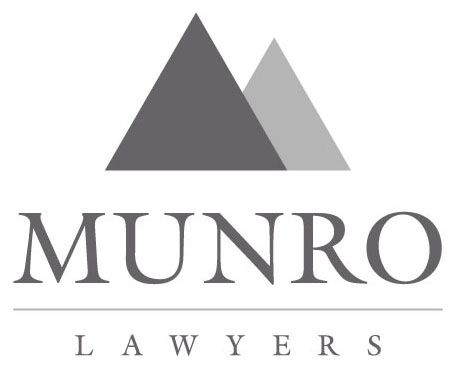Our firm provides comprehensive advice on the taxation treatment of self managed superannuation funds and obligations under the Superannuation Industry (Supervision) Act 1993 (‘SIS Act’) and Regulations. We also monitor changes to the superannuation legislation and update clients on these changes.
Kevin Munro has provided superannuation advice since 1979 and has conducted two major seminar series on self managed superannuation funds for the National Tax and Accountants Association.
A self managed superannuation fund can be used for retirees who are looking to convert their superannuation into an income stream, to those who are still accumulating their superannuation during their working life.
Some advantages of running a self managed superannuation fund are:
- Control over how your assets are invested;
- Greater investment freedom including the ability to monitor how the investments perform and the power to make your own investment decisions;
- Flexibility in the range of investments to suit your needs;
- The ability to invest into related companies and trusts provided certain criteria are met;
- Active participation in the management of the self managed superannuation fund;
- Reduced reporting requirements; and
- Favourable taxation treatment, including a lower income tax rate and a discount for capital gains tax.
We select the right strategy and implement an appropriate structure to suit your individual needs and to ensure maximum returns and minimise fees and taxes.
We can establish your self managed superannuation fund and provide you with the documentation including:
- Trust deed establishing the fund;
- Governing rules;
- Membership application forms;
- Product disclosure statement;
- Consent to act as a trustee;
- Trustee minutes;
- ATO forms including Trustee declaration;
- Binding death benefit nominations.
Once your self managed superannuation fund is established, we can assist with providing deeds of variation, appointments and retirements of trustee, and changes of details for superannuation funds.
We advise on all taxation aspects for self managed superannuation funds including:
- Concessional and non-concessional contributions;
- Superannuation contributions splitting (which allows members to split certain superannuation contributions with their spouse and have them transferred into their spouse’s superannuation account);
- Salary sacrifice contributions;
- Reasonable Benefit Limits (these are the key rates and thresholds that apply in relation to contributions and benefits, employment termination payments, super guarantee and co-contributions);
- Transition to retirement rules (these are the rules which apply to you if you have reached your preservation age and where you may be able to reduce working hours without reducing your income, by topping up your part-time income with a regular ‘income stream’ from your superannuation savings; under these rules you can only access your superannuation benefits as a ‘non-commutable’ income stream (one that cannot be converted into a lump sum);
- Pension/lump sum benefit planning and the establishment of account based pension arrangements;
- Investment structures and strategies;
- Capital gains tax planning;
- Asset protection and superannuation (including the interaction of the Bankruptcy Act);
- Treatment of benefits including forfeiture of superannuation benefits and binding death benefit nominations.
- The requirements to meet if you relocate overseas and have a self managed superannuation fund in Australia.
We advise on the various compliance requirements once the self managed superannuation fund is established, including:
- The duties of trustees and record keeping;
- Advising on the sole purpose test;
- Investment structures and strategies;
- In-house asset rules;
- Borrowing and lending;
- Arm’s length requirements and other rules in superannuation law.
We liaison with regulators regarding audits and investigations of superannuation funds and we can assist with obtaining self managed superannuation specific advice from the ATO.
Instruction Sheets for Self Managed Superannuation Funds (SMSF)
Limited Recourse Borrowing (when purchasing property either from a related party or a third party)
We provide advice and documentation for superannuation funds when buying property (either from a related party or a third party), including preparation of documentation relating to borrowing involving limited recourse borrowing arrangements, which involves:
- Advising on the requirements in the SIS Act;
- Reviewing the super fund deed and upgrading where necessary;
- Preparing a Custodian trust deed (a bare trust deed between the Custodian and trustee of the self managed superannuation fund),
- Preparing resolutions for the Custodian and the trustee of the superannuation fund regarding the limited recourse borrowing;
- Preparing the documents for the limited recourse loan (where necessary) which complies with section 67A of the SIS Act including loans from a related company that also complies with Division 7A of the Income Tax Assessment Act 1936),alternatively, reviewing the loan documents for compliance with section 67A of the SIS Act where the loan is from an unrelated lender (such as a bank)
- On completion of the review, and providing the requirements are met, we can provide a letter of compliance with section 67A of the SIS Act;
- Preparing documents in relation to an application for stamp duty concession on the custodian trust deed and lodging with the Office of State Revenue for stamping
- Preparing a commercial lease agreement (where necessary);
- Preparing a mortgage (where necessary)
- Preparing documents in relation to an application for stamp duty concession on the transfer from the Custodian to the trustee of the superannuation fund once the superannuation fund has made repayments on the loan to the lender.
